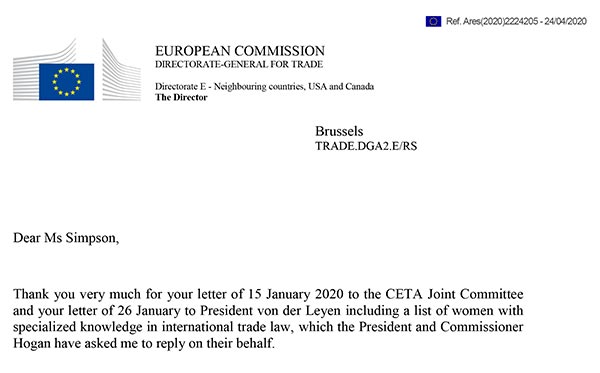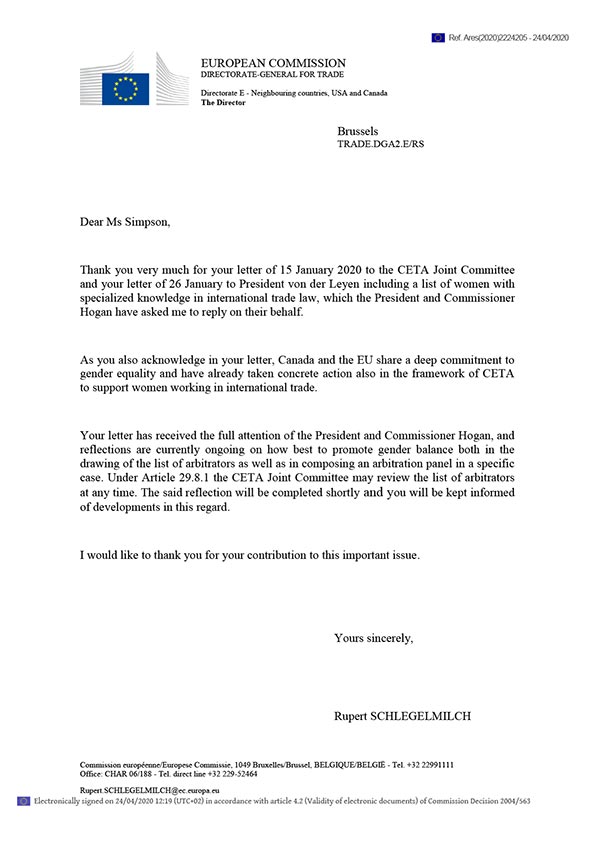News
ArbitralWomen members publish news about dispute resolution from across the world.
“Your letter has received the full attention of the President and Commissioner Hogan, and reflections are currently ongoing on how best to promote gender balance both in the drawing of the list of arbitrators as well as in composing an arbitration panel in a specific case. … The said reflection will be completed shortly and you will be kept informed of developments in this regard.”ArbitralWomen welcomes the European Commission's willingness to reflect on how best to promote gender balance in both the CETA List generally and in composing arbitral tribunals in specific cases. Simpson’s advocacy and persistence is an excellent example of what can be achieved when you “Walk the Talk” as discussed in the recent article by ArbitralWomen’s co-founder Mirèze Philippe, reported on our News Page here. As Simpson discussed in her interview with ArbitralWomen (available here in our recent Newsletter at pages 4 to 8), treaty-based lists of arbitrators, like the CETA List, serve as a public verification of the listed person's credentials, and these appear to be backed by public accountability. Moving toward gender parity in all dispute resolution arbitrator rosters will be a significant step toward achieving gender parity in international dispute resolution generally. There now is reason to believe that the CETA Joint Committee will create a balanced roster. In the response, the European Commission also stated in its response that, “under Article 29.8.1, the CETA Joint Committee may review the list of arbitrators at any time.” Already beginning to “walk the talk”, Simpson has advised ArbitralWomen that a draft decision of the CETA Joint Committee setting out the administrative and organisational matters regarding the functioning of the Appellate Tribunal envisioned in the CETA, published on 7 May 2020, refers to the importance of making appointments with a view toward gender equality. With Simpson’s list of 70 women with specialised knowledge of international trade law, Simpson urges that the CETA Joint Committee should have no difficulty identifying women for these roles. We are pleased to share this good news and congratulate Katherine Simpson on her work to highlight the gender diversity issues with respect to the CETA List.
Each year ArbitralWomen provides support to a number of Teams who participate in dispute resolution competitions, such as the Vis or Vis East International Arbitration Moot by covering their registration fee.
Following are the conditions for the funding:

 The European Commission's response letter states, in part:
The European Commission's response letter states, in part: